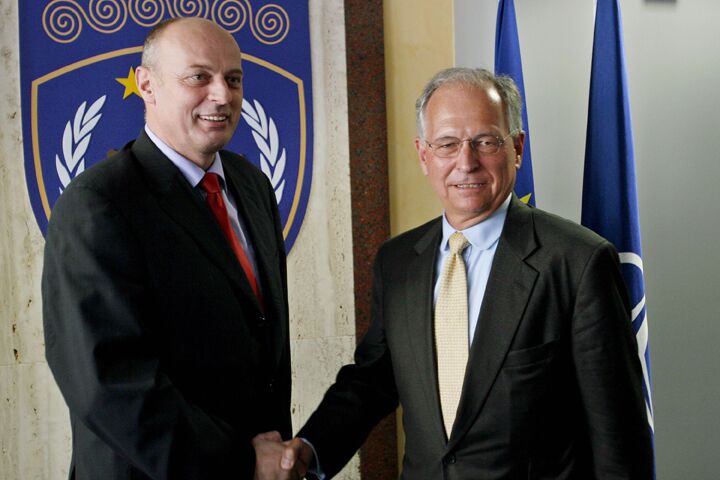
Europe Thinking About Resolving Kosovo—Without UN
The European Union could decide to determine Kosovo’s future, even without United Nations consensus, if it listens to recent calls made by a European think tank and the foreign minister of Portugal. The assertions are part of a rising movement in Europe for the EU to establish a firm position on the future of the province.
The International Crisis Group said Tuesday that a “bloody and destabilizing conflict” would result if the EU did not recognize Kosovo soon and indicated that dispatching a diplomatic mission there, even without a UN resolution, would be worth the risk. The Brussels-based organization also stated that the EU should act even without unanimous consensus inside the EU itself, so long as more than half of the member states agreed to recognize Kosovo (Deutsche Welle, August 22).
“The EU has a ticking time bomb in its own backyard,” the group’s leader, Alexander Anderson, said. “The sooner the EU or a majority within the EU agree to support an independent Kosovo, the better the prospects are for preventing a catastrophe” (ibid.).
Portugal, which currently controls the EU presidency, has spoken out in support of resolving the issue without a UN go-ahead through Foreign Minister Luis Amado.
“We are in Europe,” Amado said on Wednesday. “The European Union has an important responsibility in dealing with this situation” (ibid.). He also called the issue “a problem in the heart of Europe” (People’s Daily, August 23).
Europe, and Germany in particular, is facing off against Russia in a battle of wills, power politics and strategy over the Balkan province.
Although it still technically falls under Serbian sovereignty, Kosovo has been administered independent of Belgrade by the UN since 1999, when nato bombings wrested control of the area from former Yugoslav President Slobodan Milosevic’s forces.
Kosovars are 90 percent ethnic Albanian, and an overwhelming majority is demanding full, internationally recognized independence from Serbia. The U.S. and the EU generally favor the idea, but Russia is backing Belgrade, which refuses to relinquish its sovereignty over the territory.
So far the EU has been reluctant to act on the situation without UN backing, but that may soon change.
Both Russia and the United States are members of the UN.
Acting on reports of genocide and bowing to German pressure in mid-1999, the UN dispatched nato forces to bomb Milosevic’s military and the infrastructure of Yugoslavia in order to liberate Kosovo from alleged Nazi-like atrocities. Evidence cited in several reports of Serbian brutality was later proved to be fake.
Germany has historically opposed Serbia, which joined the United States and its allies in World Wars i and ii. To learn more about Germany and Europe’s designs for the Balkans, read “Face-off Over Kosovo” from the August/September issue of the Trumpet and The Rising Beast—Germany’s Conquest of the Balkans.
